After 58 years of longing and pain, recrimination and near misses, heroic failure and regret, the Euro 2024 final is England’s time for redemption, writes OLIVER HOLT
They have built two giant poles and a crossbeam for the Brandenburg Gate in the heart of the German capital, transforming the ancient monument, which was trapped in a barbed wire fence between East and West during the Cold War, into a giant target.
It has been transformed into a vibrant place with Euro 2024 fan zones and food stalls. It is no longer a gloomy place. So much has changed, but one thing remains the same: England are still trying to escape the football no-man’s land.
When Gareth Southgate and his England players enter the Olympiastadion on Sunday night to play Spain in the European Championship final, they will be haunted by 58 years of longing, pain, recriminations, near misses, heroic failures, ridicule, regret and an unquenchable thirst for redemption as they walk through the players’ tunnel.
Southgate said at England’s base in Blankenhain on Friday that he wanted to win the European Championship “so badly it hurts”. Generations of England fans have echoed that prayer. Let’s get over the line this time, please.
Only Sir Geoff Hurst of that golden team that won the 1966 World Cup still lives, but in our memories those men who were his team-mates never grow old. They live on, immortalised by what they achieved and what no other English team has ever been able to match.
Harry Kane and England can join the heroes of the 1966 World Cup by beating Spain on Sunday
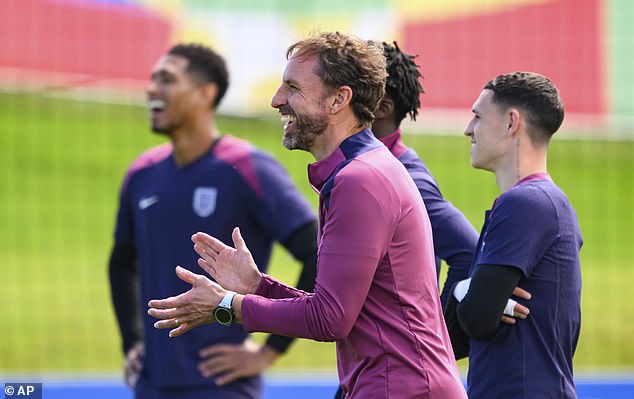
England will attempt to end a 58-year injury woe in the 2024 European Championship final against Spain on Sunday
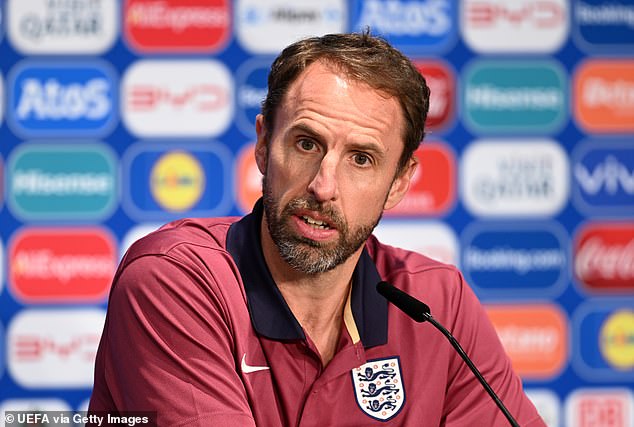
Fans echo Southgate’s comments that he wants to win the European Championship so badly it’s ‘painful’
England’s futile attempts to relive that glorious day, decade after decade and tournament after tournament, have acquired a kind of inevitability, so that to us in the third decade of the 21st century they resemble a tragicomedy with scenes we know by heart.
If you’re an England fan, you’ll come across the same images: Bobby Charlton being substituted with England ahead against West Germany in 1970, Gunter Netzer delivering the coup de grace for England in 1972, Jan Tomaszewski making one superb save after another for Poland at Wembley in 1973 to prevent England from qualifying for the 1974 World Cup.
Kevin Keegan missing a flying header and England being knocked out of the 1982 World Cup without losing a game, Diego Maradona’s Hand of God in 1986, Chris Waddle’s narrow penalty in 1990, Graham Taylor shouting ‘What the hell is going on here?’ as Ronald Koeman escaped a red card and England failed to qualify for the 1994 World Cup.
Southgate’s missed penalty at Euro 1996, David Beckham’s red card at St Etienne in 1998, Phil Neville’s foul on Viorel Moldovan at Euro 2000, Ronaldinho and David Seaman in 2002, Wayne Rooney’s broken metatarsal in 2004, Rooney’s mark on Ricardo Carvalho in 2006, the Wally with the Brolly in 2007.
And then there’s the most recent work: Frank Lampard’s goal that never came in Bloemfontein in 2010, Andrea Pirlo’s Panenka penalty at Euro 2012, which he knocked out in six days at the World Cup in Brazil and lost to Iceland in 2016, Luka Modric getting his hands on the ball in 2018, Bukayo Saka’s ordeal at Euro 2020 and Harry Kane blasting his penalty over the bar in the Qatari desert in 2022.
Add them up, the moments of frustration, misery, stoicism, anger and scapegoating, and you might be forgiven for thinking Southgate and his team are more concerned with playing a game of football than performing an act of penance.
The men’s team’s failure to win a tournament in 58 years has become one of the most infamous droughts in sports history. The Boston Red Sox finally overcame the Curse of the Bambino, a British man won the singles title at Wimbledon after a 77-year hiatus, and Bayer Leverkusen won the Bundesliga title for the first time in its 120-year history last season. The curse of England, however, continues.
The sins of their footballing fathers have nothing to do with the Boys of ’24, who walk into the stadium that hosted the 1936 Olympics and attempt to break a losing streak that has shaped our national psyche. Yet they pay for those sins in our collective desperation to beat Spain and end the pain.
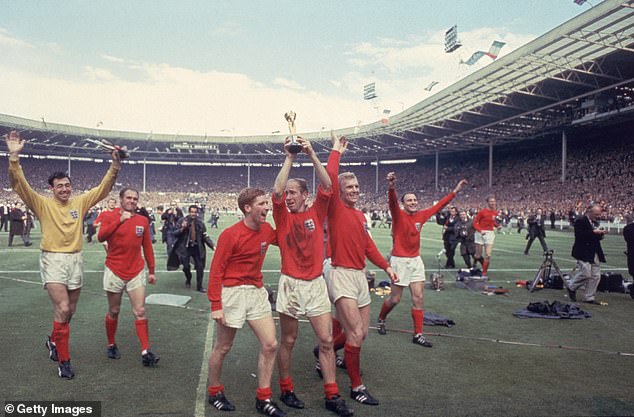
The England team that won the 1966 World Cup have been immortalised by what they achieved and what no other English team has ever been able to match.
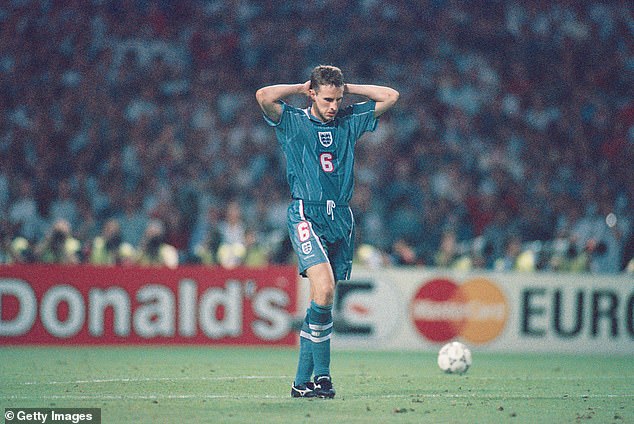
Gareth Southgate’s missed penalty in 1996 is one of many painful moments for the Three Lions
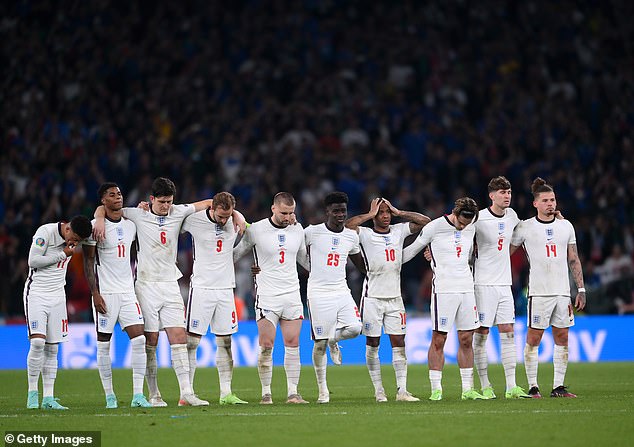
England hope to avoid a second straight defeat in the European Championship final
The history of the men’s team over the last 58 years has been one of constant sadness. It is a decline that overshadows the end of the empire and the somber anger at the loss of the country’s pre-eminent place in the world order. No fan brings more national flags to matches than the England fans.
We are trying to regain more than just our pride in our football team.
All this and more hangs around the necks of Kane and Saka and Jude Bellingham and Phil Foden and John Stones and Kyle Walker and of course Southgate as they prepare to face Spain. There is so much at stake, so much joy within reach, that it is hardly worth contemplating. We are talking about the prospect of overturning an inferiority complex in our national sport.
It was only a few weeks ago, don’t forget, that some idiots threw beers at Southgate in Cologne after England had drawn with Slovenia to top their group. Yes, you remember. It was only a few weeks ago that Gary Lineker, the BBC’s chief sports presenter, called Southgate’s team ‘s**t’.
“We live in an angry country,” Southgate told newspapers on Friday, “and I wish it were different, so hopefully we can bring some temporary happiness. But we’re not going to change our country, we can just try to set some good examples.”
They are up against all of this, Southgate’s formidable team. And that’s before we even mention Spain, the best team in the tournament so far, a team that has beaten the other two best teams at these Euros, Germany and France, on their journey to Berlin.
On Sunday night, everyone is expecting the Spanish Inquisition. Spain have lit up the tournament. Lamine Yamal, their 17-year-old winger, who scored a wonder goal against the French, is a prodigious talent who makes men four times his age jump out of their seats with his skill.
Rodri and Fabian Ruiz make a sublime midfield duo, Nico Williams’ pace leaves a dark trail and Dani Olmo’s insight and vision have ensured Spain have continued to flourish even after Germany knocked Pedri out of the tournament.
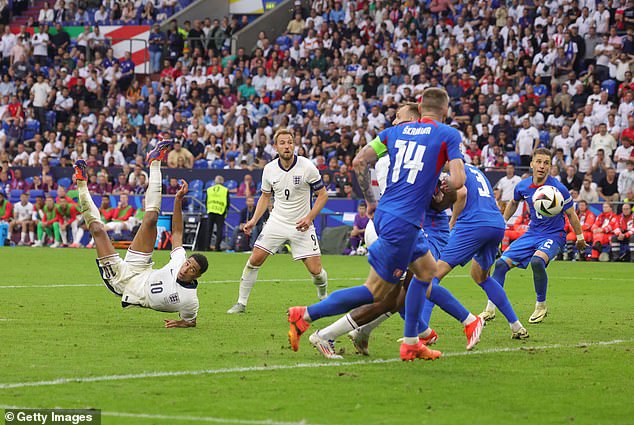
England struggled to get going at the European Championship and were minutes from elimination in the last 16 until Jude Bellingham’s bicycle kick took the match into extra time, where they won
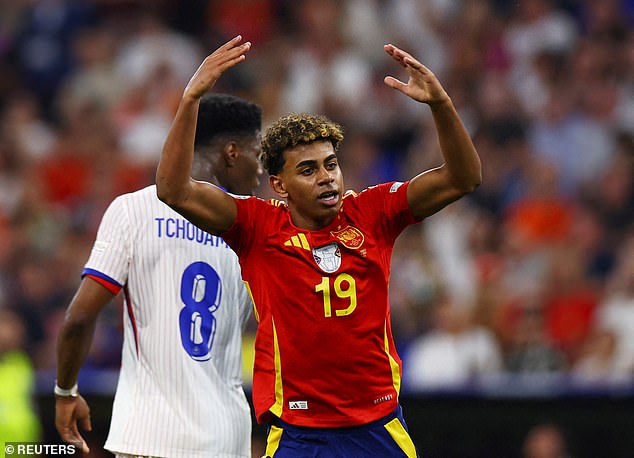
Spain brightened up the tournament with Lamine Yamal (pictured) as one of their star players
The Spanish also have a decent record in these moments. The national team and several Spanish club teams have won their last 26 finals in a row. Spain may not have won a tournament since Euro 2012, but their players know how to get the job done.
Sorry. Am I putting you down? I don’t mean to. In fact, all this adversity, all this history, could work to England’s advantage. I think they’ll use it and they’ll harness it and they’ll draw inspiration from it. They know they’re the underdogs and that’s how they want it. It’s already liberated them.
That is the story so far, after all. They have been questioned, despised and laughed at from their opening match against Serbia to the semi-final against the Netherlands.
And they kept coming back. And they kept getting back up. And they kept proving the doubters wrong. And they kept defying the odds. And they kept scoring late goals. And they kept their nerve. And they kept refusing to lose.
They may not have played the best football in this tournament, but they have the best team spirit. And they have refused to conform to the standard of heroic failure that has doomed English teams time and time again.
If any group of players can dismantle the curse of England, it is this group and this manager. They may have started the tournament with a web of expectation that tied their ankles to a stone, but they have thrown it off and grown with every game.

If there is one group of players who can break the curse of England, it is this group and this manager.
Thanks to the unity he has created, the collective spirit he has fostered and the way he has encouraged so many players in his team to play their part, Southgate has created a team environment that has been crucial to his success as England manager since Sir Alf Ramsey.
Southgate has dismantled so many psychological blocks that have held England back for so long. This is their second European Championship final in three years, and the third time in six that they have reached the semi-finals or better. He has swept away the culture of fear and the history of sadness, and now the moment of truth has arrived.
“Tournaments take you to strange places and difficult routes,” Southgate said after Bellingham’s brilliant bicycle kick in the last-round match against Slovakia in Gelsenkirchen.
The route took him and his never-give-up team to Berlin, where they confronted the failures of the past decades and the current glory of Spain. One look at the giant goalpost in front of the Brandenburg Gate is enough to let you know that sometimes the barbed wire is removed and the no-man’s-land loses its bonds.
